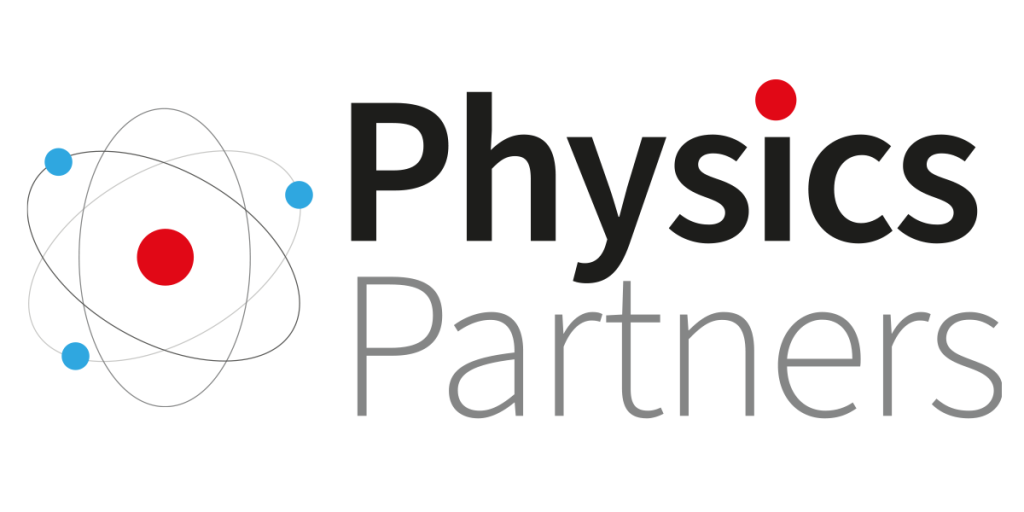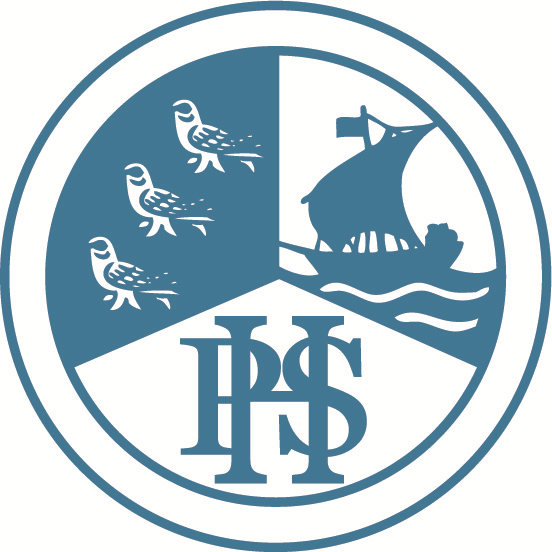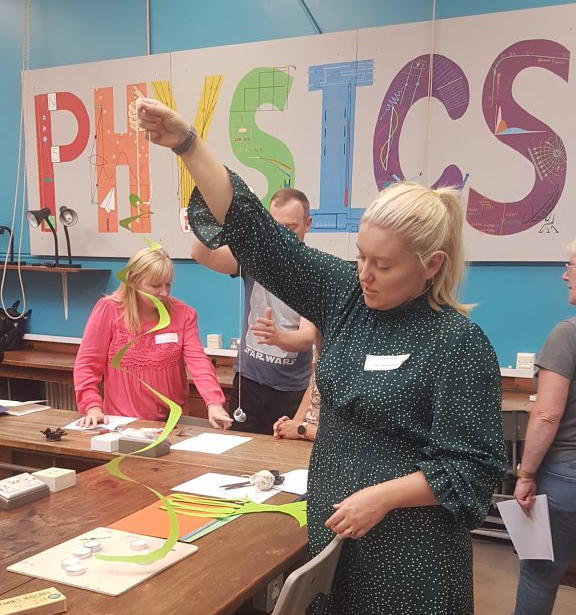


Physics Partners are hosting a South East Festival of Physics on Saturday 7th October at Hove Park Upper School (BN3 7BN), kindly funded by the Ogden Trust, with support from STEM Learning. All are warmly invite to this full day of training and workshops which will include sessions for all secondary teachers of physics, including ECTs, trainees and technicians. The day is free to attend and includes a hot lunch and pudding!

Sessions will include hands-on practical activities and ideas for making your teaching even more engaging, all delivered by expert physics teacher trainers. There will also be a chance to network with colleagues from across the region and browse exhibition stands showcasing nationally and locally available resources, as well as physics equipment and suppliers.
We are delighted to be welcoming Andrew Hanson MBE as the keynote speaker. Andrew is an engaging speaker and will be a fantastic end to the day.
Booking for this event is now live and will close on Saturday 30th September. Please make your workshop preferences when you book. and we will do our best to accommodate your choices. Please find full programme details below, followed by the booking form.
Keynote Speaker: Andrew Hanson ‘The Measure of All Things’
Andrew received an MBE for work in STEM, for galvanising hundreds of scientists and engineers through the Outreach programme of the National Physical Laboratory (NPL) to meet over half a million students, educators, and members of the public. Andrew has an enormous amount of respect and sympathy for primary and secondary teachers as the heroes of the school/educational system/future UK workforce because metrologists are in a similar boat. In fact some people don’t even know what a metrologist is.
At the end of this lively talk, you will understand what measurement is and how it underpins pretty much every human endeavour. Andrew will talk about how everything is ultimately measured against just 7 things, talk about NPL’s Outreach program and introduce some recently invented prefixes to describe big and large amounts.
Workshop 1 choices
| 1.1 GCSE Required Practicals | Christina Astin | KS4 | In a busy school week it’s hard to find time to try out experiments, so here’s your chance! Christina has selected five of the most challenging physics required practicals for GCSE for you to get your hands on, collect data and ask questions about. You can try out some or all of them. What are the best ways to present them to your class? Are there alternative methods or equipment you can use? What other support might be available? 1. Specific Heat Capacity 2. I-V characteristics 3. Acceleration 4. Waves (Ripple Tank) 5. Radiation and absorption (Leslie cube) | Christina Astin, FInstP, FCCT. Christina is an education consultant advising schools on partnerships (especially cross-sector) and science. She chairs Planet Possibility, a consortium working to radically improve diversity in physics, a mission close to her heart, as a female physicist herself. She co-founded Young Scientists Journal and leads physics teacher development. Christina advises corporate clients on education projects from local to global. @ChristinaAstin www.astinconsulting.com |
| 1.2 Cloud Chambers Make and Take (DOUBLE LENGTH WORKSHOP) | Darrell Hamilton | KS4 | Making something abstract concrete is a useful tool for those teaching physics. Cloud chambers allow students to see the paths that ionising radiation has travelled. The workshop involves assembling the cloud chamber from parts provided. This will require some soldering. PLEASE NOTE: This workshop is a double length workshop so will cover the second workshop slot too. There is a limit of 10 teachers for this session. | Darrell Hamilton was Head of Physics for 15 years before becoming a Head of Science for 8 years. He is a trained coach offering CPD delivery and teacher mentoring. |
| 1.3 Wireless sensors for required practicals | Lee Grahame, Data Harvest | KS3, 4 & 5 teachers & technicians | Use EasySense2 software with wireless sensor in this hands-on workshop to show how to use datalogging to get the most out of your GCSE and A level required practicals. | Lee Grahame is Director of Data Harvest |
| 1.4 STEM Clubs | Claire Davies | KS3 & 4 teachers & technicians | An insight into schemes, competitions and resources available for STEM clubs. | Claire Davies is an assistant headteacher at Downlands Community School and has been a science teacher for the past 26 years. She has a keen interest in quality-first classroom teaching and stretch and challenge of all pupils. Claire is also the Lead of the Sussex and Surrey SLP (Science Learning Partnership) where she works with many science teachers providing high-quality CPD. Her particular focus is on the recruitment and retention of good classroom teachers. |
| 1.5 Why we are sometimes waving and drowning? | Trevor Plant | KS3, 4 & 5 teachers | Fun with slinkies and other wave models. Then the serious stuff. You’d think using the wave equation and explaining wavelength are easy tasks. But so many of us are getting it wrong and so increasing students’ misunderstandings. This session will explain the problem, show you how to do it better and make you feel better about it by sharing examples of other people and institutions (who really should know better!) getting it wrong. | Trevor Plant is an experienced coach and teacher educator who has previously worked for the IOP and the Universities of Brighton, Portsmouth and Southampton with trainee and practising teachers. Trevor taught A-level physics for over 28 years |
| 1.6 Problem-solving with Isaac Physics | Ingrid Murray | KS3, 4 & 5 teachers | Explore the problem-solving challenges on Isaac Physics – for all secondary teachers, not just specialists. | Ingrid is the Teacher Support Manager for Isaac Physics. She has 20 years’ experience of teaching and leading Physics and Science in UK schools. She is a SENDCO with a keen interest in Research in Schools, equality and diversity. |
Workshop 2 Choices
| 2.1 GCSE Required Practicals | Christina Astin | KS4 | In a busy school week it’s hard to find time to try out experiments, so here’s your chance! Christina has selected five of the most challenging physics required practicals for GCSE for you to get your hands on, collect data and ask questions about. You can try out some or all of them. What are the best ways to present them to your class? Are there alternative methods or equipment you can use? What other support might be available? 1. Specific Heat Capacity 2. I-V characteristics 3. Acceleration 4. Waves (Ripple Tank) 5. Radiation and absorption (Leslie cube) | Christina Astin, FInstP, FCCT. Christina is an education consultant advising schools on partnerships (especially cross-sector) and science. She chairs Planet Possibility, a consortium working to radically improve diversity in physics, a mission close to her heart, as a female physicist herself. She co-founded Young Scientists Journal and leads physics teacher development. Christina advises corporate clients on education projects from local to global. @ChristinaAstin www.astinconsulting.com |
| 2.2 Making Sound with Breckland Scientific | Sarah Marshall | KS3, 4 & 5 teachers | Liven up your lessons on sound and waves. In this hands on session we’ll be making loudspeakers and testing them; making sound balloons and looking at equipment to use in the teaching of Sound and Wave activities. | Sarah is Breckland Scientific’s Sales Support Manager for South East England and East London. Sarah spent many years as a Senior Science Technician in a secondary school in West Sussex. She is always very keen to keep up to date with the latest developments affecting the teaching of science in schools and the resourcing of school science departments. |
| 2.3 Comparing strategies to teach thermal physics | Rajiv Roshi | KS3, 4 & 5 teachers | In this session we will try out a number of teaching methods for the thermal physics topic. These will range from traditional experiments to plotting the cooling curve of a slice of pizza. We will examine the use of simulations, storytelling, concept cartoons and diagnostic question and discuss their effectiveness and how they can be integrated into the curriculum. | Raj Joshi (@mrjoshiphysics) ) has taught in London for 14 years as a classroom teacher, middle and senior leader, and School Improvement Director for a group of 8 schools. He has trained teachers and educators on behalf of the IOP and Science Museum and has been issued the Senior Facilitator CPD quality mark by STEM learning. He currently teaches Physics at Dulwich College and is chair of the ASE London Region |
| 2.4 Supporting GCSE Practicals | Robin Hughes | Technicians | In this session we will demonstrate how to set-up the GCSE required practicals that Christina Astin is demonstrating at her session for teachers. | Robin Hughes has been Chairman of the British Physics Olympiad for the past ten years and a UK team leader at the International Physics Olympiad for considerably longer. He is also a member of the Isaac Physics team at the Cavendish Laboratory working on supporting physics teaching in UK schools through an online platform. |
| 2.5 Identifying the building blocks of knowledge to teach the KS3 curriculum | Samantha Weston | KS3 teachers | This session looks at the KS3 curriculum, identifying the building blocks of knowledge required to teach it. We will map this with the KS1 and KS2 curriculum and see how these building blocks are tackled to help with the transition to the more complex ideas. We will then discuss opportunities to work with feeder schools to support the building of these ideas and look at potential misconceptions. | Sam works for the Public Engagement with Research unit at University of Southampton. Previously she was Physics Outreach Officer at University of Surrey and also organised and led training sessions for the Science Learning Partnership in Hampshire |
| 2.6 Engineering Solutions for a Brighter Future | Scott Atkinson | KS3 & KS4 teachers | A look at low-cost engaging activities for the classroom that can be linked to the curriculum or used to introduce sustainability to STEM clubs. The activities include: * Properties of water and soap to create soap-powered boats. * Building a boom to clean an oil spill. * Making a floating compass. * Exploring the impact of invasive species on an ecosystem. * Understanding how water levels change when ice melts. * Designing and building a water turbine. | Scott Atkinson is a STEM education programmes manager at the Royal Academy of Engineering and a former teacher and faculty lead of Design, Technology, Engineering and the Arts. He is passionate about inspiring young people to pursue careers in STEM and has over 20 years of experience in education and engineering. |
Workshop 3 Choices
| 3.1 Engineering Solutions for a Brighter Future | Scott Atkinson | KS3 & KS4 teachers | A look at low-cost engaging activities for the classroom that can be linked to the curriculum or used to introduce sustainability to STEM clubs. The activities include: * Properties of water and soap to create soap-powered boats. * Building a boom to clean an oil spill. * Making a floating compass. * Exploring the impact of invasive species on an ecosystem. * Understanding how water levels change when ice melts. * Designing and building a water turbine. | Scott Atkinson is a STEM education programmes manager at the Royal Academy of Engineering and a former teacher and faculty lead of Design, Technology, Engineering and the Arts. He is passionate about inspiring young people to pursue careers in STEM and has over 20 years of experience in education and engineering. |
| 3.2 Newton’s Laws Made Easy | Trevor Plant | KS3 & KS4 teachers | Well, at least easier. A few simple rules when talking about forces makes Newton’s laws so much less likely to lead to confusion. So we’ll use lots of hands-on examples and discuss how we apply the rules. We’ll also show some fabulous eye-opening demonstrations of Newton’s laws that I guarantee you will be using when you teach this next… | Trevor Plant is an experienced coach and teacher educator who has previously worked for the IOP and the Universities of Brighton, Portsmouth and Southampton with trainee and practising teachers. Trevor taught A-level physics for over 28 years |
| 3.3 Comparing strategies to teach thermal physics | Rajiv Joshi | KS3, 4 & 5 teachers | In this session we will try out a number of teaching methods for the thermal physics topic. These will range from traditional experiments to plotting the cooling curve of a slice of pizza. We will examine the use of simulations, storytelling, concept cartoons and diagnostic question and discuss their effectiveness and how they can be integrated into the curriculum. | Raj Joshi (@mrjoshiphysics) ) has taught in London for 14 years as a classroom teacher, middle and senior leader, and School Improvement Director for a group of 8 schools. He has trained teachers and educators on behalf of the IoP and Science Museum and has been issued the Senior Facilitator CPD quality mark by STEM learning. He currently teaches Physics at Dulwich College and is chair of the ASE London Region |
| 3.4 Supporting GCSE Practicals | Robin Hughes | Technicians | In this session we will demonstrate how to set-up the GCSE required practicals that Christina Astin is demonstrating at her session for teachers. | Robin Hughes has been Chairman of the British Physics Olympiad for the past ten years and a UK team leader at the International Physics Olympiad for considerably longer. He is also a member of the Isaac Physics team at the Cavendish Laboratory working on supporting physics teaching in UK schools through an online platform. |
| 3.5 Identifying the building blocks of knowledge to teach the KS3 curriculum | Sam Weston | KS3 teachers | This session looks at the KS3 curriculum, identifying the building blocks of knowledge required to teach it. We will map this with the KS1 and KS2 curriculum and see how these building blocks are tackled to help with the transition to the more complex ideas. We will then discuss opportunities to work with feeder schools to support the building of these ideas and look at potential misconceptions. | Sam works for the Public Engagement with Research unit at University of Southampton. Previously she was Physics Outreach Officer at University of Surrey and also organised and led training sessions for the Science Learning Partnership in Hampshire |
| 3.6 Problem-solving with Isaac Physics | Ingrid Murray | KS3, 4 & 5 teachers | Explore the problem-solving challenges on Isaac Physics – for all secondary teachers, not just specialists | Ingrid is the Teacher Support Manager for Isaac Physics. She has 20 years’ experience of teaching and leading Physics and Science in UK schools. She is a SENDCO with a keen interest in Research in Schools, equality and diversity. |
Checkout issues? Book here >>
Download the event poster here>>
